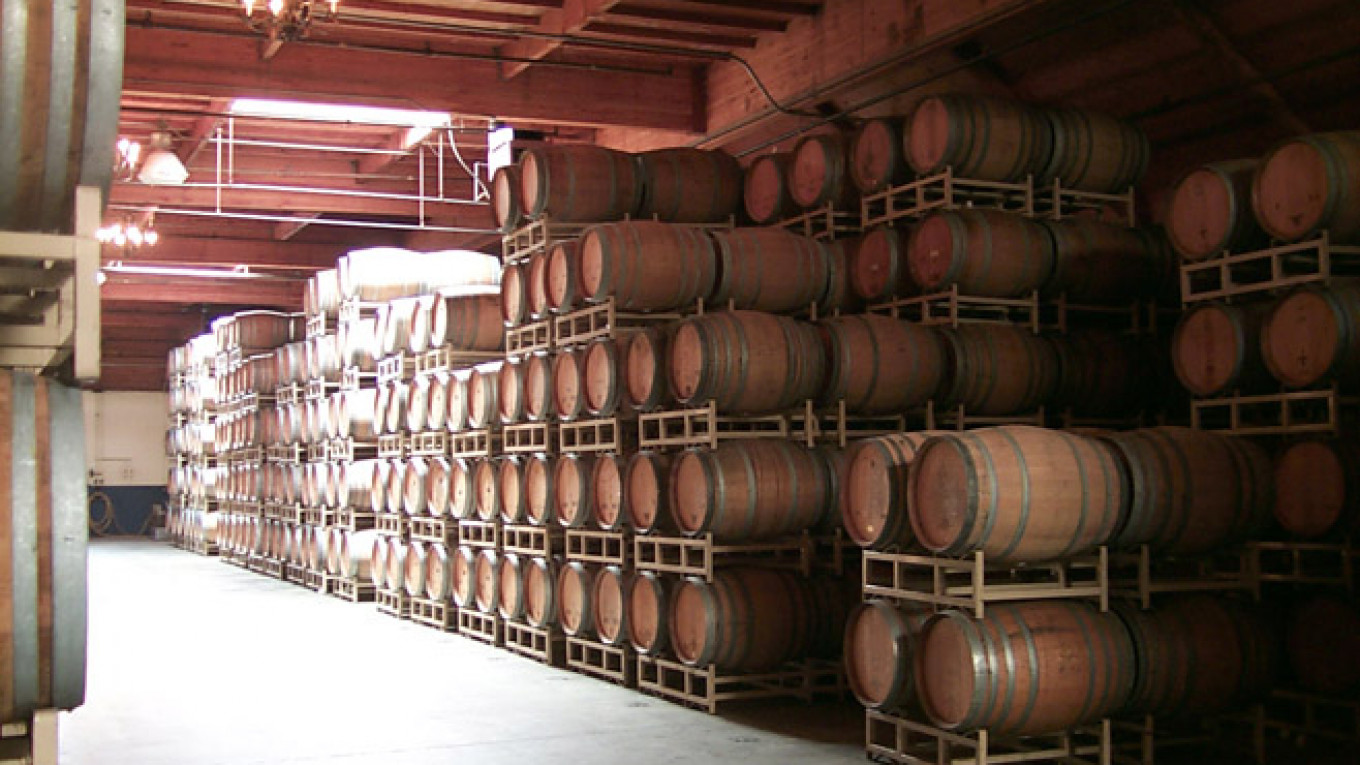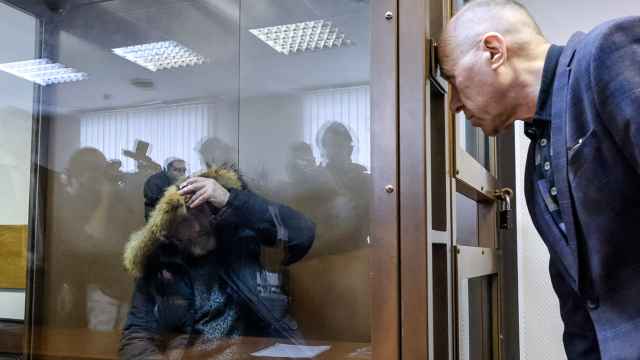As the U.S. and Russia engage in a seemingly endless display of finger-pointing and political posturing over the Ukraine conflict, Russia's consumer protection watchdog has taken a number of bold actions recently, from banning Ukrainian soy to seeking a prohibition on McDonald's chicken and milkshakes.
Even Polish apples were not spared the agency's discerning eye. Poles have made light of the ban by posting apple-eating selfies across the social media sphere. The Polish Facebook page "Eat Apples to Annoy Putin" has garnered more than 40,000 likes.
Food bans and threats thereof have not been limited to the Federal Consumer Protection Service's turf in recent weeks. Russian lawmakers also requested the consumer rights watchdog conduct surprise inspections on other large fast-food American restaurants operating in Russia, including KFC and Burger King.
American poultry and beef may fall victim to the next round of bans, Russia's veterinary and phytosanitary watchdog warned Monday. Russia has already banned Australian beef, Latvian and Lithuanian pork and Moldovan fruit since the March annexation of Crimea.
Far from illustrating a new trend, these examples merely add bulk to the already significant list of foreign food products banned in Russia at the first sign of disagreement with foreign countries. Two major examples have included Georgian wine and Belarussian dairy.
Georgian Wine
Georgian wine, a staple of Soviet-era tabletops, vanished from supermarket shelves across Russia in 2006 as the former Soviet republic began its veer toward the West.
Russia's ban on Georgian wine in the aftermath of the country's 2003 Rose Revolution, which launched the ambitious, pro-Western Mikheil Saakashvili to the country's presidency.
Relations between Russia and Georgia took a turn for the worse after two explosions in January 2006 damaged pipelines in North Ossetia. Georgian authorities blamed Russia for the incident, claiming it had been a tactic to force the country to surrender its energy assets to Russia's Gazprom. Russia dismissed these accusations.
Tensions eventually heated up to the extent of a full-scale war in August 2008 between the two countries.
Prompted by Russia's accession to the World Trade Organization in 2012, Georgian wine returned to the Russian market in the summer of 2013.
Belarussian Dairy
As Belarus began its rapprochement with the West through its admission to the EU's Eastern Partnership in 2009, Russia tightened the reins on its loyal ally with a crackdown on the Belarussian dairy industry.
Belarus then unleashed an onslaught of pro-Western moves, including: securing an additional loan from the International Monetary Fund, speaking out against the rise of Russian gas prices and refusing to recognize the independence of the Georgian breakaway regions of South Ossetia and Abkhazia.
Russian then banned some 1,200 dairy products from the country.
In response to the ban, Belarussian President Alexander Lukashenko snubbed the summit of the Collective Security Agreement Organization, a military alliance between Russia and some former Soviet republics, and announced that new checkpoints could be expected to pop up along the Russian border.
But these post-Soviet allies could not stay angry with each other for long. Two weeks after the ban took effect, Russia announced that Belarussian products had come up to par, and resumed dairy imports from the country.
See also:
U.S. Chicken Farmers Brace for Russia's Retaliation to Sanctions
Russia Considering Ban on EU Fruit Imports
Contact the author at [email protected]
A Message from The Moscow Times:
Dear readers,
We are facing unprecedented challenges. Russia's Prosecutor General's Office has designated The Moscow Times as an "undesirable" organization, criminalizing our work and putting our staff at risk of prosecution. This follows our earlier unjust labeling as a "foreign agent."
These actions are direct attempts to silence independent journalism in Russia. The authorities claim our work "discredits the decisions of the Russian leadership." We see things differently: we strive to provide accurate, unbiased reporting on Russia.
We, the journalists of The Moscow Times, refuse to be silenced. But to continue our work, we need your help.
Your support, no matter how small, makes a world of difference. If you can, please support us monthly starting from just $2. It's quick to set up, and every contribution makes a significant impact.
By supporting The Moscow Times, you're defending open, independent journalism in the face of repression. Thank you for standing with us.
Remind me later.






